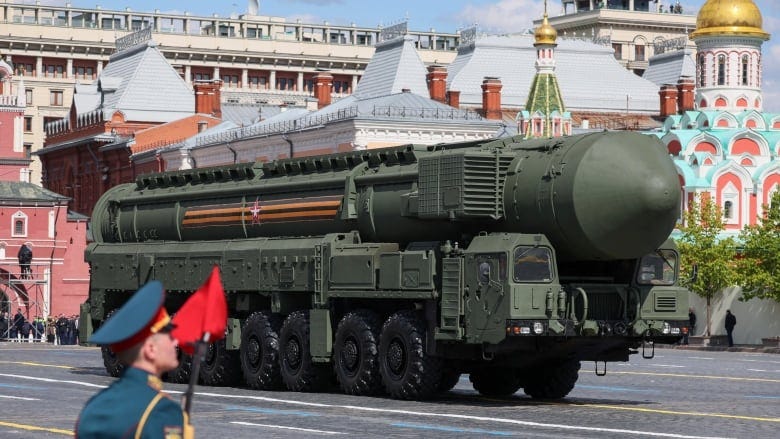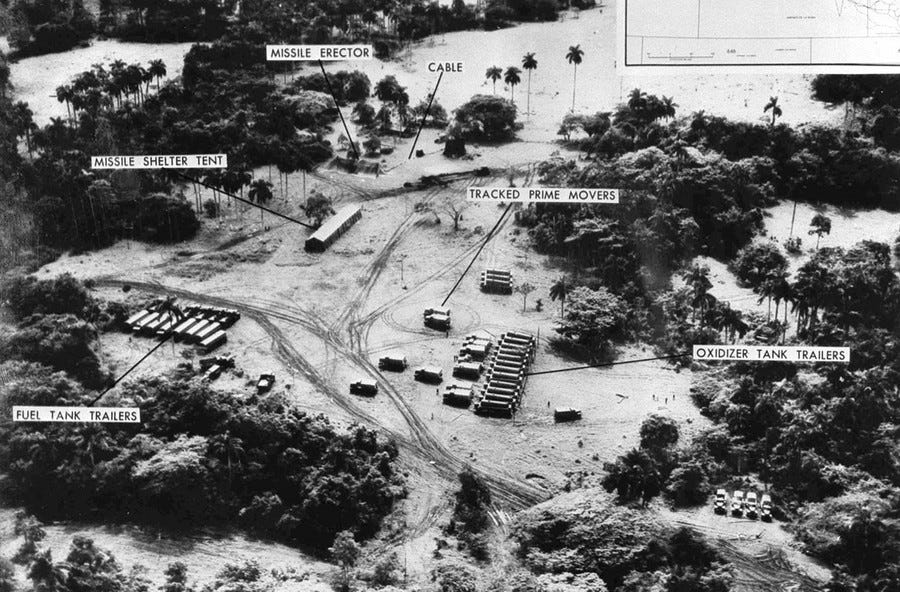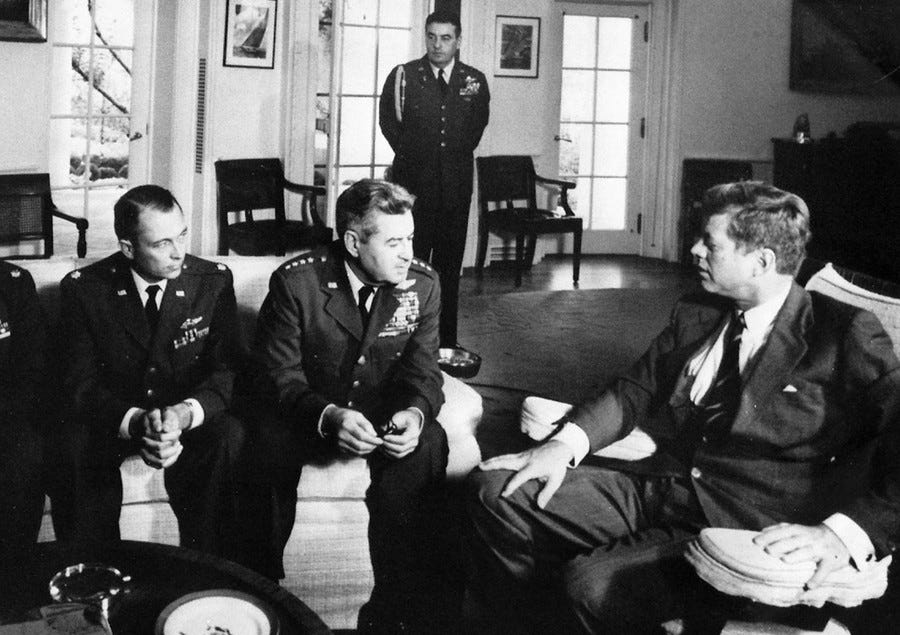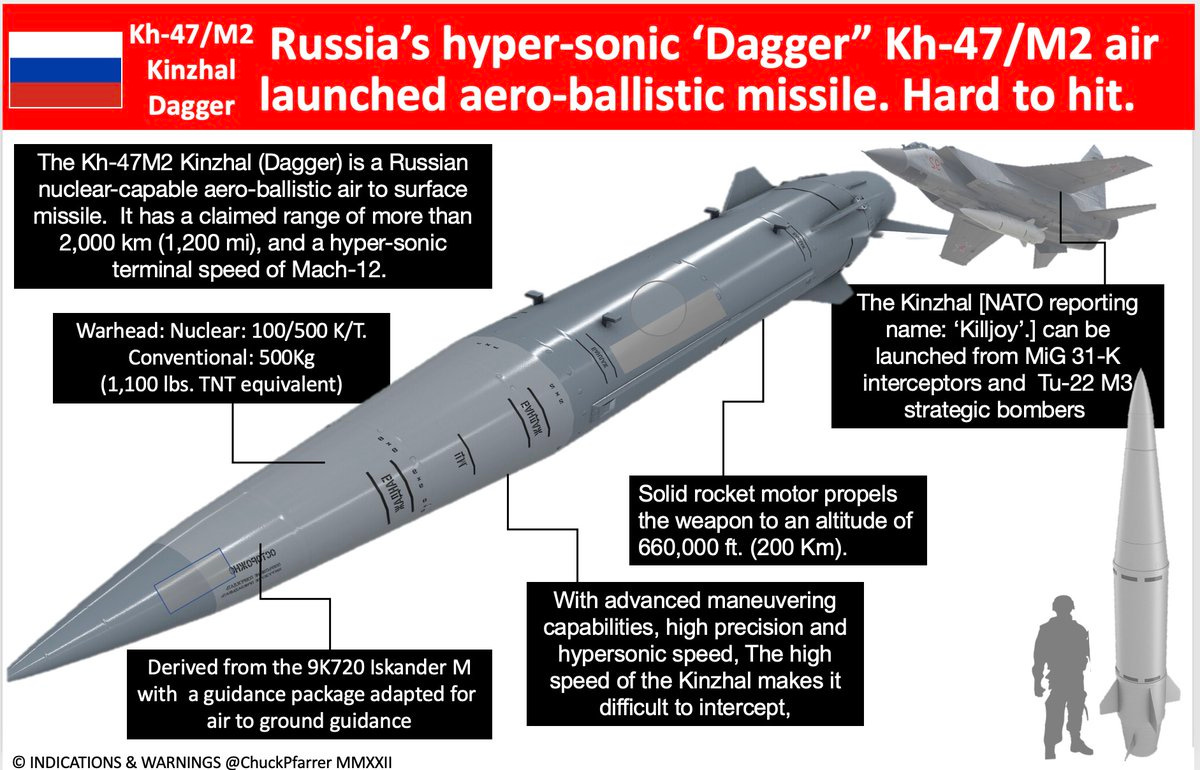Brink of an Epoch: Russia's Checkmate in the Face of US Nuclear Escalation
Unraveling Western Dominance: A Tale of Cosmic Defeats and Shifting Global Power

By: Gerry Nolan
In a world where geopolitical tides are rapidly and unpredictably shifting, the recent revelation by The Telegraph of the United States' decision to station nuclear weapons in the UK, a move not seen in over 15 years, starkly illuminates escalating tensions with Russia. This action not only exposes blatant contradictions in Western policies but also reveals an alarming disregard for the fragile equilibrium that has long governed international relations. It is a move that reeks of hypocrisy, as the West, often cloaked in the rhetoric of security and stability, unilaterally escalates military tensions, cynically overlooking the lessons of history and the imperatives of a balanced global order.
In direct response, Russian lawmaker Aleksey Zhuravlev's proposition to deploy nuclear weapons in Cuba or other friendly nations, emerges not merely as a nostalgic echo of the Cuban Missile Crisis, but as a calculated and forceful riposte within a broader play. This proposition represents Russia's direct challenge to a waning Western hegemony, now desperately clinging to its fading grip in a world increasingly resistant to unipolar dictates. Far from being a mere strategic maneuver, Zhuravlev's move is a bold condemnation of Western duplicity, highlighting the dissonance between the West's proclaimed pursuit of security and its actions that speak of recklessly insane posturing and a disdain for the principles of mutual respect and sovereignty. This stance not only questions the moral high ground often claimed by Western powers but also signals a profound shift towards a more assertive Russian foreign policy approach, one that is unafraid to directly confront and expose these inconsistencies. This represents a departure from Russia's previously more reactive or asymmetric strategies, now evolving into a bold, assertive posture that challenges the West not merely in response, but as a proactive architect of a new, multipolar global dynamic.
Evocative of the most precarious moments of Cold War dynamics, this move underscores not just the complexity but the inherent contradictions and hypocrisy with Western geopolitical calculus. It serves as a stark reminder that the multipolarity of the modern world demands a reassessment of strategies and narratives that have long been dominated by a single, increasingly unconvincing Western dogma.

The Cuban Missile Crisis Revisited

The suggestion by Russian lawmaker Aleksey Zhuravlev to deploy nuclear weapons in Cuba is a deliberate and resonant echo of the Cuban Missile Crisis, a historical standoff that brought the world to the brink of nuclear war. However, unlike the bipolar world of 1962, today's geopolitical landscape is markedly multipolar and increasingly complex. The recent disclosure by The Telegraph of the U.S.'s plan to station nuclear weapons at RAF Lakenheath in the UK, a move designed to counter a perceived Russian threat, however ludicrous, represents a significant escalation in this current chapter of US hegemonic downfall. This development is not just about the re-emergence of nuclear brinkmanship; it's a vivid demonstration of how the West, while maintaining a veneer of defence and security, takes aggressive steps that profoundly destabilize the geopolitical equilibrium.

This contemporary parallel to the Cuban Missile Crisis goes beyond the mere presence of nuclear weapons; it symbolizes the deep-rooted and often overlooked inconsistencies in Western foreign policy. The U.S.'s decision to reintroduce nuclear warheads into the UK after a 15-year hiatus is a stark testament to the shifting strategies of Western powers, who insanely discard diplomatic engagements in favour of one dead-end playbook - escalation. It reflects a troubling pattern where historical lessons about the dangers of nuclear escalation are ignored in favour of wishful, short-term geopolitical gains.
In this context, Zhuravlev's favoured countermove emerges as a significant recalibration in global power dynamics. It challenges the narrative of Western dominance and exposes the rules of engagement long dictated by Western powers as not only outdated but dangerously provocative. By mirroring the West's actions, Russia not only underscores the shifting balance of power but also forces a critical reevaluation of the strategies that have led to this point. Zhuravlev's proposition is thus more than a strategic response; it's a profound critique of a world order that is disproportionately influenced by cynical Western interests, and a call for a return to a more balanced, multipolar world where such aggressive posturing bares too heavy a cost.
Beyond Waning Influence: The West's 'Cosmic Humiliation'
The unfolding situation in Ukraine is not just a conflict; it's a resounding and humiliating defeat for the West and, by extension, the United States. Despite the totality of the Western military-industrial complex's might, NATO's top training of Ukrainian brigades, and the deployment of the West's most advanced air defense systems, tanks, real time intel and tech, Russia is steadily and decisively defeating NATO via Ukraine. This scenario represents a stark rebuke to Western military prowess, with Russia seemingly achieving this with 'one hand tied behind its back.' The symbolism of this defeat is profound – it’s not merely a tactical setback but a cosmic humiliation that questions the very efficacy and dominance of Western military strategy. This defeat in Ukraine, far from being an isolated event, forms a part of a larger narrative of waning Western influence, signaling a seismic shift in global power dynamics.
When viewed in totality, the defeats faced by the West across various fronts bear the essence of a comprehensive resistance strategy, seemingly coordinated by the Russia-China-Iran axis of sanity. The pattern of resistance is unmistakable: from missile and drone strikes on the US bases, including the Tower 22 attack at the Al-Tanf base in Southeastern Syria, to the resistance in Iraq targeting US and Mossad bases. Meanwhile, the Houthis, in a strategic masterstroke, have effectively severed Red Sea transit to unfriendly powers, signalling a new era of control over vital maritime routes. Adding to this is the potential escalation with Hezbollah, potentially opening a second front against Israel, and the almost inevitable choking off of the Strait of Hormuz. These coordinated actions collectively represent more than just tactical victories; they symbolize a fundamental knockout blow to U.S. hegemony in the region. The United States, once perceived as an unassailable superpower, now appears as an emperor stripped of his clothes. The stacking cosmic humiliations, far-reaching and deep, signal a pivotal moment in global geopolitics, one that will herald the dawn of a new era dominated not by unipolar dictates but by a more balanced, multipolar order.
Zhuravlev's Nuclear Gambit: A Symbol of Resistance
Getting back to Zhuravlev's proposal to deploy Russian nuclear weapons in Cuba, and potentially in other 'friendly countries' like Venezuela and Nicaragua, is a bold statement of resistance against Western encroachment. This is not just a military strategy but a symbolic gesture, asserting Russia's refusal to be contained by a Western-centric world order. The lawmaker's reference to Russia's advanced military capabilities, including hypersonic missiles and strategic submarines, serves as a reminder that the modern theatre of war has evolved, diminishing the strategic importance of proximity. Moreover, this move underscores a strategic shift in global military doctrines, emphasizing the capability to project power in a manner that defies traditional geographic constraints. It also signals Russia's readiness to engage in a new form of deterrence, one that challenges the conventional norms and tactics of Western military strategy, asserting a bold new paradigm in international power dynamics.
The West's outcry against Zhuravlev's proposition highlights the illusion of the 'rules-based international order' it champions. When the West positions its military assets around the globe, it's deemed a necessity for international security. However, when Russia suggests a similar strategy, it is portrayed as a threat to global stability. This double standard is indicative of a 'rules-based order' that applies selectively, skewed to benefit Western interests, international law be damned.
The Hypocrisy of Western Deterrence
The narrative of Western deterrence, often shrouded in the language of defence and stability, is increasingly viewed with a mix of skepticism and cynicism, particularly in light of contrasting Russian strategic maneuvers. The deployment of U.S. nuclear weapons in Europe, touted as a necessity to counter the so-called 'Russian threat', is starkly at odds with the vehement outcry provoked by any similar Russian efforts to fortify her own defence capabilities. This glaring discrepancy not only exposes the inherent hypocrisy in Western security rhetoric but also underscores a broader theme of geopolitical double standards. Such actions, while identical in nature, are paradoxically celebrated or condemned based on the actor involved, revealing just how Russophobic and hysterical the West has become.
In this context, Russia's strategic responses are not mere acts of aggression but rather calculated moves in a game where the rules seem to be arbitrarily defined by the West. These responses crush the narrative of Western moral superiority and highlight a dire need for a more balanced approach to global security issues, one that transcends the simplistic dichotomy of aggressor versus defender. This approach, reflecting a more nuanced understanding of global power dynamics, is essential in an increasingly multipolar world where the old paradigms of unilateral Western dominance are being steadily eroded
Zhuravlev's reference to the advancements in Russian military technology - hypersonic missiles and strategic submarines - is not mere posturing. It symbolizes a Russia that is prepared, technologically and strategically, to counterbalance Western military advances. These developments signify a shift in the global military balance, where traditional concepts of geographical proximity and nuclear deterrence are being upended by rapid technological advancements. Russia's military evolution and unmatched prowess is a clear message to the West: the old rules of the game are changing, and so are the players.
The Western response to Zhuravlev's suggestion, and to the broader challenges to its hegemony, will be a litmus test of its diplomatic acumen and ability to adapt to a changing world. Clinging to old narratives of power and control will no longer suffice in a world where traditional power structures are being questioned and new ones are emerging. The West's ability to engage in genuine dialogue and reconsider its approach to international relations will determine its role and relevance in the new global order.
Some Final Thoughts: A New Epoch in Geopolitical Power Play
As the contemporary echoes of the Cuban Missile Crisis reverberate, we're witnessing not just historical parallels but the unfolding of what can only be described as cosmic defeats for the West. This epoch is marked by a series of strategic blunders by Western powers and masterful counterstrikes by Russia, heralding the twilight of an era dominated by unipolar ambitions. Zhuravlev's bold proposition to deploy nuclear weapons in Cuba and potentially beyond is not an isolated event but a pivotal marker in this seismic shift, a defiant checkmate to the Western-centric world order.
The West, entangled in its own web of double standards and hypocrisy, finds its traditional tools no longer holding water in a world that's rapidly awakening to their rigged game. Each move, whether the deployment of nuclear weapons in Europe or the lopsided application of international law, has been met with a calculated and strategic response from Russia, exposing the fragility of the the (rigged) 'rules-based order.' The narrative of Western moral superiority crumbles under the weight of its own contradictions, as Russia, with strategic acumen, lays bare the illusion that has long governed post cold war relations.
In this rapidly evolving geopolitical landscape, the archaic playbook of dominance and unilateralism championed by the U.S. is not just obsolete—it's an anachronism, blatantly out of sync with the current global pulse. The world is no longer a stage for the U.S. to dictate terms; it demands a paradigm shift where cooperation decisively eclipses confrontation, where the multiplicity of power and unyielding respect for sovereignty are not just ideals, but the very pillars of international relations. This is a world where the global community, in its rich diversity and collective wisdom, forges the rules of engagement. We're moving into an era where the narrative is no longer scripted by a single hegemon but co-authored by an ensemble of nations, each with a voice and agency, signalling the dawn of a truly multipolar world order. The shift is irreversible, the message unequivocal: the era of U.S.-centric geopolitics is ending, giving way to a more just and multipolar global stage.





